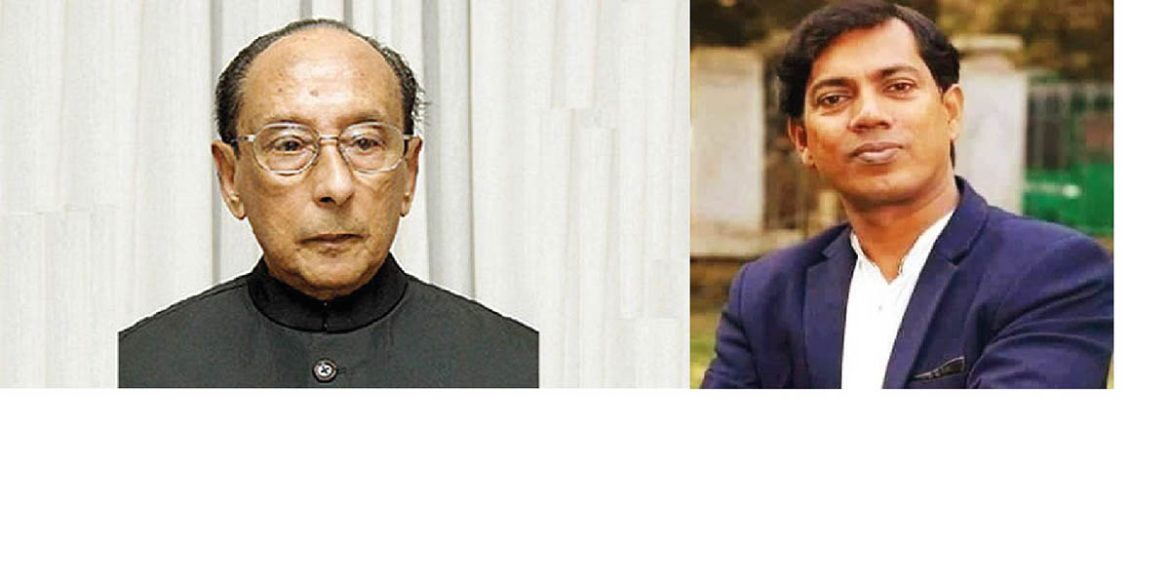Zillur Rahman remained uncompromising on the issues of Bangabandhu and Sheikh Hasina until his last breath. The name of a selfless, humble, and soft-spoken leader who was a true friend of the workers is Zillur Rahman. He taught how to stand firm like a mountain during difficult times by renouncing greed, temptation, and the allure of power.
Zillur Rahman remained uncompromising: This veteran leader, deeply cherished by Bangabandhu, was affectionately called “Chacha” (Uncle) by Prime Minister Sheikh Hasina. His position within the Awami League was akin to that of a guardian. Not only within the party but also as a guardian of the state, he remained an honest leader until his last breath. As the 19th President of Bangladesh, Zillur Rahman set an exceptional example of loyalty and dedication to party leadership. Overlooking his personal struggles, he dedicated himself entirely to the Awami League during its most challenging times. He devoted his life to the land and the people of this country.
After the independence of Bangladesh, Bangabandhu Sheikh Mujibur Rahman chose him as the General Secretary of the Awami League. Two decades later, Sheikh Hasina, the daughter of Bangabandhu, placed the same trust, guardianship, and reliance on him. During the emergency of 2007, when Sheikh Hasina was imprisoned, she appointed Zillur Rahman as the acting president of the party. In the absence of her father, he took on the responsibility of protecting and supporting Bangabandhu’s daughter.
Zillur Rahman repaid the affection of Sheikh Hasina by keeping the Awami League united and playing a courageous role in the movement for her release and the restoration of democracy. That is why, upon his passing, Sheikh Hasina’s face reflected the profound void of losing a guardian. In her message of condolence, she recalled his contributions, saying, “During the extreme crisis of One-Eleven, Zillur Rahman took charge of the party, and under his strong leadership, the Awami League was able to free me from prison.”
In politics, we often praise those who are in power, but those who pass away are gradually erased from our memories. We forget their contributions. We must rise above this mindset. The remarkable contributions of deceased politicians to nation-building must be highlighted for future generations. The patriotism, foresight, and wisdom of leaders like Zillur Rahman should be brought to the forefront to guide the future leadership of our country.
Zillur Rahman was born on March 9, 1929, in Bhairab, Kishoreganj. In 1970, he was elected to the Pakistan National Assembly from that region and continued to contest elections from the same constituency thereafter. He was elected as a Member of Parliament from Bhairab in 1973, 1986, 1996, 2001, and 2008. After he became the President, his son Nazmul Hasan took over the representation of that constituency.
His political journey began during his student years. After completing his intermediate studies at Dhaka College, he actively participated in the Language Movement while studying at the University of Dhaka. He earned an Honours degree in History, along with an MA and LLB, in 1954 and prepared to join the legal profession. His father, Meher Ali Mia, was also a lawyer. However, Zillur Rahman was more drawn to politics than law. Following this passion, he became the founding president of the Kishoreganj Subdivision Awami League in 1956. Later, he was elected General Secretary of the Dhaka District Lawyers Association in the 1960s.
His political life was shaped by activism and struggles. He could not ignore the call for movements and protests, making the streets his true battleground rather than the courtroom. During the emergency of 2007, Zillur Rahman was seen actively participating in Sheikh Hasina’s legal battles. Despite the hardship, he remained steadfast in his political commitment.
Zillur Rahman endured personal tragedies as well. His wife, Ivy Rahman, a prominent political leader and women’s rights activist, was tragically killed in the 2004 grenade attack at Bangabandhu Avenue. The attack left behind her husband, their son Nazmul Hasan, and two daughters, Tanima Bakht and Tania Rahman. The loss deeply shattered Zillur Rahman, yet he remained active in politics. Unlike many senior leaders who sought to protect themselves during the political crisis of 2006, he never wavered in his stance. He was unwavering in his loyalty to the Awami League, Bangabandhu, and Sheikh Hasina.
In 2007, when Sheikh Hasina was arrested under false and harassing charges, the Awami League faced one of its most difficult times. The responsibility of leading the party fell on the elderly shoulders of Zillur Rahman. Braving all threats and temptations, he navigated the storm with resilience. Recognizing his contributions, Sheikh Hasina later remarked that he had played a crucial role in saving the party during that crisis.
After his passing, Sheikh Hasina expressed in her condolence message that Zillur Rahman would remain immortal in the history of Bangladesh’s democracy. He officially took office as the 19th President of Bangladesh on February 12, 2009. On March 20, 2013, he passed away at Mount Elizabeth Hospital in Singapore.
Zillur Rahman’s legacy of honesty, patriotism, and unwavering faith in Bangabandhu, the Liberation War, and the leadership of Sheikh Hasina will continue to inspire Mujib’s followers in times of crisis and hardship. On his 11th death anniversary, we pay our deepest respect to this legendary politician.
Writer: Manik Lal Ghosh, Former Vice-President of the Dhaka Journalists’ Union and central executive member of Bangladesh Awami Jubo League.


